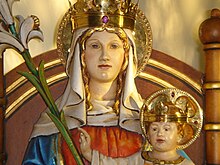Religion in England
Other Christian traditions in England include Roman Catholicism, Methodism, Presbyterianism, Mormonism, and the Baptists.After Christianity, the religions with the most adherents are Islam, Hinduism, Sikhism, Judaism, Buddhism, modern paganism, and the Bahá'í Faith.The church regards itself as the continuation of the Catholic church introduced by St Augustine's late 6th-century mission to Kent as part of the Christianisation of Anglo-Saxon England, although this is disputed owing to procedural and doctrinal changes introduced by the 16th-century English Reformation, particularly the Thirty-Nine Articles of Religion and the Book of Common Prayer.It is divided among five provinces headed by the archbishops of Westminster, Liverpool, Birmingham, and Southwark in England and Cardiff in Wales.The Catholic Church considers itself a continuation of the earliest Celtic Christian communities, although its formal hierarchy needed to be refounded by the Gregorian mission to the Saxon kingdoms in the 6th and 7th centuries and again following the English Reformation.Papal recognition of George III as the legitimate ruler of Great Britain in 1766 opened the way for the Catholic Emancipation, easing and ultimately eliminating the anti-Catholic Penal Laws and Test Acts.[20] Considering the "actual condition of Catholicism in England," the number of Catholics, and the obstacles "removed which chiefly opposed" it, Pope Pius IX issued in 1850 the bull Universalis Ecclesiae to restore "the normal diocesan hierarchy."[21] More recently, the royal family has been permitted to marry Roman Catholics without fear of being disqualified from succession to the throne.Countess of Huntingdon's Connexion is a small society of evangelical churches, founded in 1783, which today has 23 congregations in England.A Greek Orthodox community already existed at the time the UK was formed, worshipping in the Imperial Russian Embassy in London.In 1882, St Sophia Cathedral was constructed in London, in order to cope with the growing influx of Orthodox immigrants.By the outbreak of World War I, there were large Orthodox communities in London, Manchester and Liverpool, each focused on its own church.Today, there are seven churches bearing the title of Cathedral in London as well as in Birmingham (the Dormition of the Mother of God and St Andrew) and Leicester.There are also large numbers of Muslims in Birmingham, Manchester, Bradford, Luton, Slough, Leicester and the mill towns of Northern England such as Huddersfield, Dewsbury, Oldham.Until the 20th century, Judaism was the only noticeable non-Christian religion having first appeared in historical records during the Norman Conquest of 1066.The last wave of migration of Hindus has been taking place since the 1990s with refugees from Sri Lanka and professionals from India.This mass immigration was caused by Idi Amin's persecution of ethnic groups in Uganda, with thousands forced to flee the region in fear of losing their lives.[41] Heathenry is a modern revival of Germanic paganism such as that practised in the British Isles by the Anglo-Saxon and Norse peoples prior to Christianisation.[38] The largest inclusive Heathen organisation that operates in England is Asatru UK, although lacking official membership statistics, as of February 2022 had 3177 members of its Facebook group.[citation needed] Gallo-Roman religion formed when the Roman Empire invaded and occupied the Brythonic peoples.Later, after most of the Anglo-Saxon peoples had converted to Christianity, Vikings from Scandinavia arrived, bringing with them Norse paganism.Notable places of worship include (but are not limited to): 36.7% of people in England declared no religion in 2021, compared with 24.7% in 2011 and 14.6% in 2001.
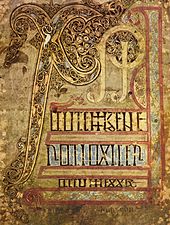

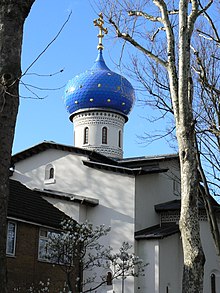

0.0%–0.9%
1%–1.9%
2%–4.9%
5%–9.9%
10%–19.9%
20+%
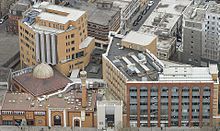

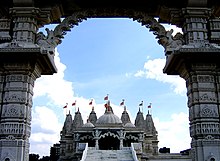

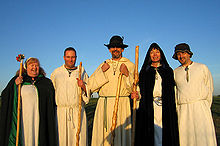
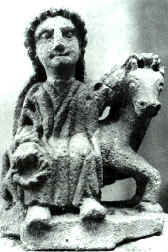
Culture of EnglandHistoryPeopleLanguagesCountry clothingMorris DancingMythologyfolkloreCuisineFestivalsSaint George's DayCommonwealth DayGuy Fawkes NightHarvest FestivalLady DayMay DayPlough MondayPlough SundayWhitsunLiteratureAbbots Bromley Horn DanceCountry danceEnglish folk musicGarland danceLong Sword danceMorris danceMummers playTelevisionCinemaBadmintonCricketCroquetField hockeyFootballLawn bowlsLawn tennisNetballTable tennisWorld Heritage SitesSymbolsCoat of armsNational anthemEnglish inventions and discoveriesChristianityNo religionHinduismSikhismBuddhismJudaismCanterbury CathedralArchbishop of CanterburyWorld Heritage Site2021 censusChurch of Englandestablishedstate churchsupreme governormonarchRoman CatholicismMethodismPresbyterianismMormonismBaptistsmodern paganismBahá'í FaithirreligionhumanismatheismShamanismWestminster AbbeySt Paul's CathedralChristmasEasterIpsos MORIRoman Catholic ChurchFree churchProtestantsEastern OrthodoxBritishIrish TravellerOther WhiteWhite and Black CaribbeanWhite and AsianWhite and Black AfricanIndianPakistaniBangladeshiChineseOther AsianCaribbeanilluminatedChi-rhoLichfield GospelsHistory of Christianity in EnglandSaint Georgepatron saintflag of Englandhis crossEdward IIISt EdmundSt Albanfirst martyrMorwennaestablished churchBritish monarchKing Charles IIIParliamentLords SpiritualHouse of Lordstwo provincesCanterburyprimatesSt AugustinemissionChristianisation of Anglo-Saxon EnglandEnglish ReformationThirty-Nine Articles of ReligionBook of Common Prayerparish churchFree Church of EnglandReformed Episcopal ChurchUnited StatesCanadaCatholic Church in EnglandAnti-Catholicism in the United KingdomOur Lady of Walsingham
